Seagate's Firecuda SSHD is a great replacement for traditional hard drives in your PC
Are hybrid drives actually good value?
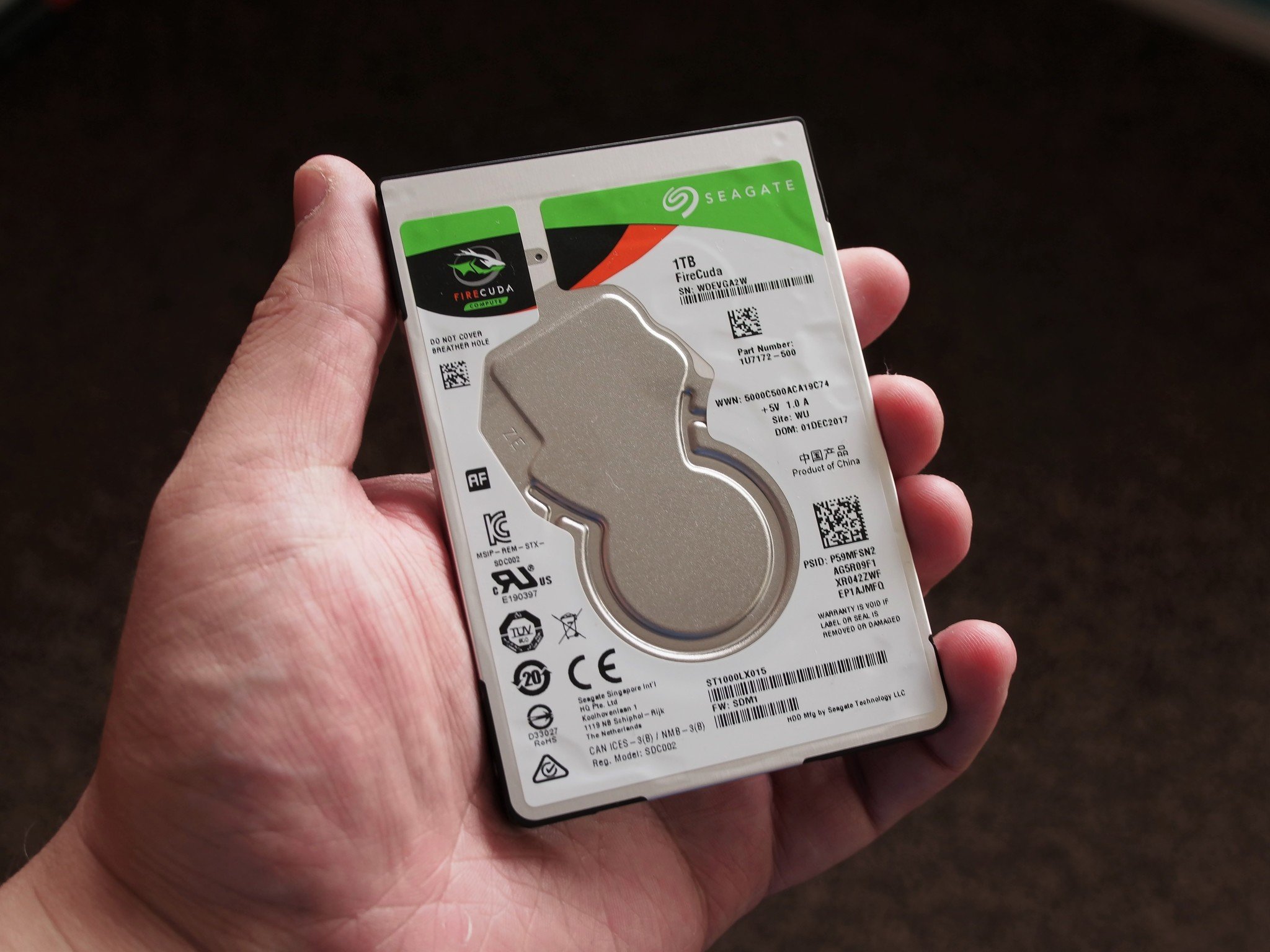
All the latest news, reviews, and guides for Windows and Xbox diehards.
You are now subscribed
Your newsletter sign-up was successful
Traditionally, PC storage is split between the fast and expensive SSD and the super slow but very affordable HDD complete with magnetic tape and needle. The latter is fairly ancient technology nowadays when it comes to PCs and with SSDs continually getting cheaper it's easier than ever to ignore the big old magnetic drives.
But, there are still places for such technology. Mostly when it comes to mass storage because they offer much better value per GB. But there's also a third way: The SSHD, also known as a hybrid drive. This combines a small amount of NAND flash storage, such as you'd find in a regular SSD, with the regular HDD style magnetic tape.
The idea is fairly simple: combine the speed benefits of SSDs with the mass volume of HDDs. The controller in the drive will decide what lives where, caching your most used data on the NAND, but ultimately a hybrid will be faster than a standard HDD.
So I grabbed a Seagate Firecuda 1TB SSHD to see what it's all about.
Seagate Firecuda SSHD hardware and performance
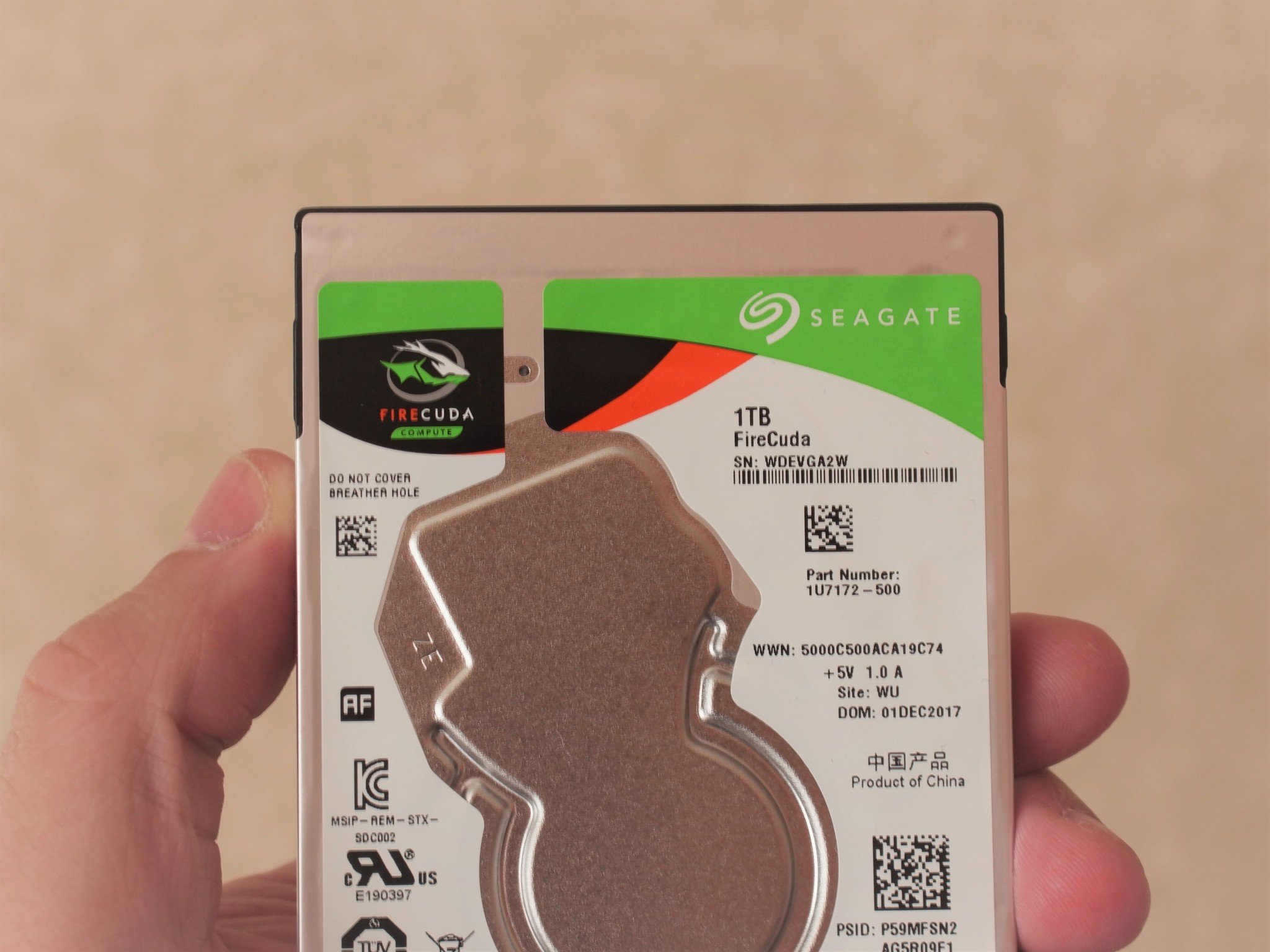
Firstly, some quick specs.
| Category | Spec |
|---|---|
| Capacity | 500GB, 1TB, 2TB 2.5-inch drive |
| Interface | SATA 6Gb/s |
| Sequential read | Up to 140MB/s |
| Sequential write | Up to 140MB/s |
| Avg power consumption | 1.8W |
| Durability | 600,000 load/reload cycles |
| Warranty | Five years |
It's also important to note that Seagate employs Multi-tier Caching Technology (MTC) to utilize NAND flash, DRAM and media caching technologies to further squeeze the most from the drive.
All the latest news, reviews, and guides for Windows and Xbox diehards.
One of the target audiences the Firecuda is pushed at is gamers, folks who want faster loading times than their huge HDDs but without sacrificing capacity. Gamers are also the type of user that will transfer large files once then leave them there, which is an ideal condition for best performance from an SSHD.
General file transfers to the mass storage on the drive still chug along the same as they would on a regular HDD. But in benchmarks, it's a little clearer to see some of that performance gain.
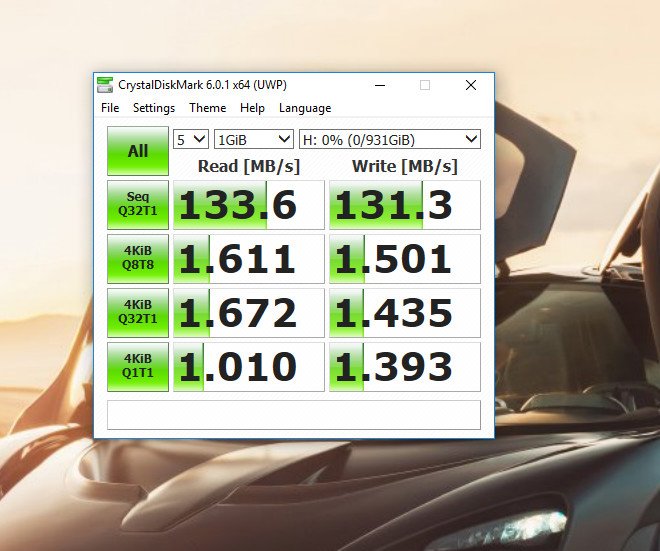
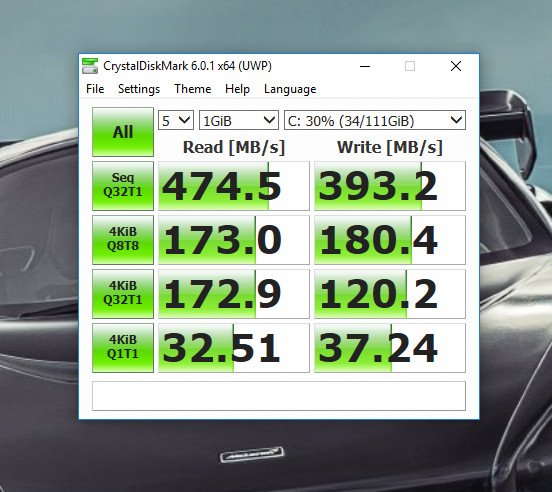
In both CrystalDiskMark and ATTO, the Firecuda about matches Seagate's claimed sequential read/write maximums. I've tried this drive in a secondary workstation which currently houses a small Kingston SSD as a boot drive.
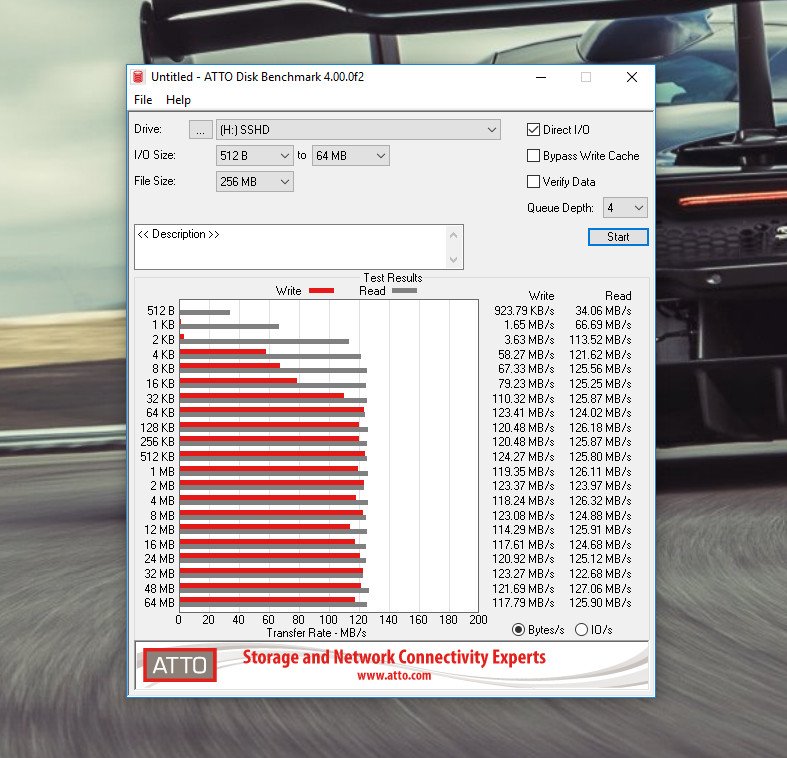
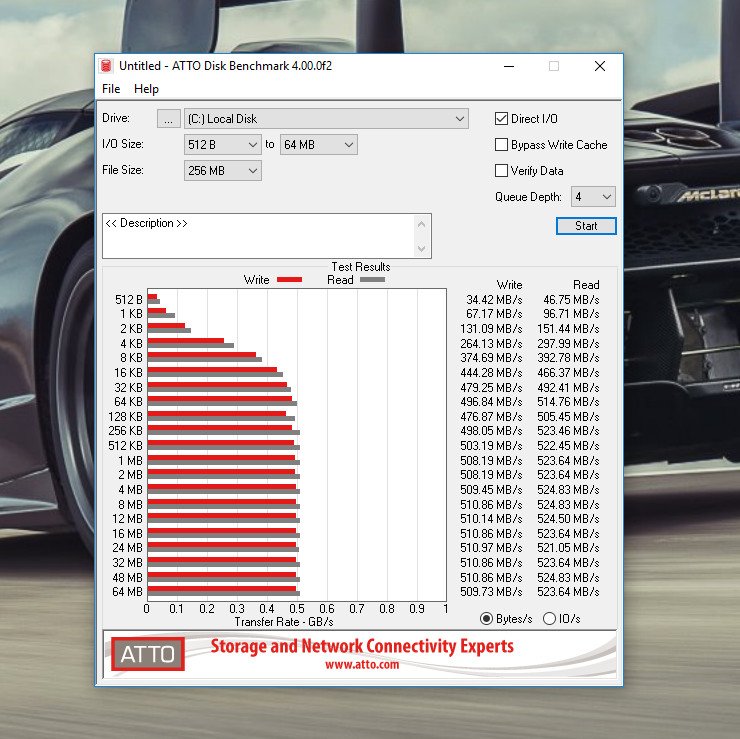
In both sets of images, the Firecuda is on the left and the Kingston SSD on the right. The Firecuda easily beats the big old HDD in the same system in benchmarks, but it's interesting to see how it compares to an affordable SSD.
The Firecuda is actually around 1/3 of the benchmarked performance of the SSD in sequential tests, which is easily better than I expected. Considering the price between the two, there's a case to be made for the SSHD.
Seagate Firecuda SSHD: Should you buy one?
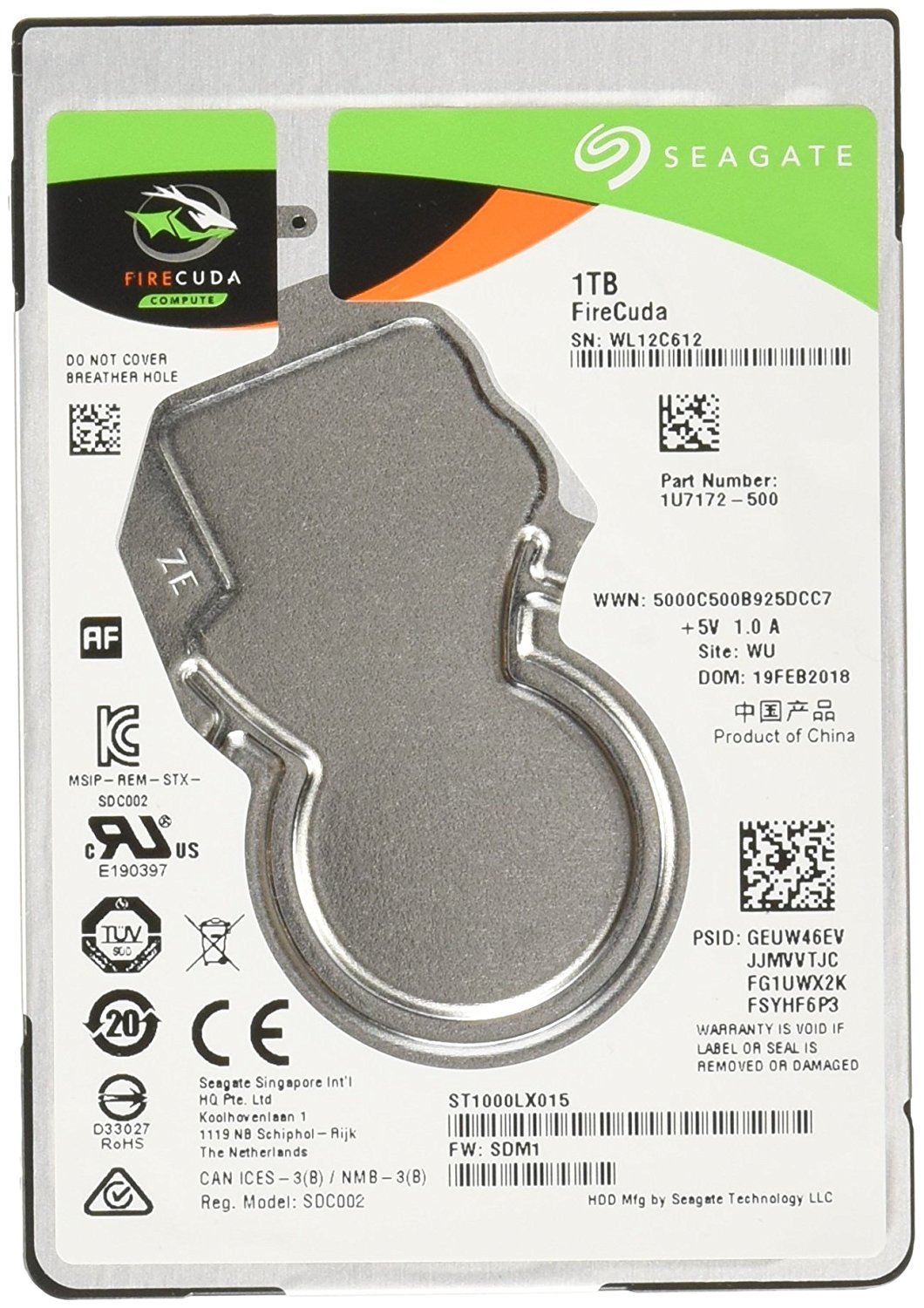
I'm not about to advocate everyone run out and buy one of these. But there's still reason to. To be clear, any SSD will be faster than this, and for even budget systems you'll have much faster loading and file transfer times on even an affordable SSD.
But here's the kicker. The 1TB Samsung 860 Evo SSD I previously reviewed costs $278. The 1TB Firecuda SSHD costs $60. In any system, you can save some serious money by combining something like this with a small SSD to boot Windows and your key apps from. Overall performance will be slower, but you can get capacity on a budget.
The price has always been the most attractive thing about using an HDD in a PC. Combined with an SSD boot drive you get a mixture of mass storage, affordability, and performance. Seagate's own Barracuda 1TB 2.5-inch HDD is only about $14 cheaper than the Firecuda, and honestly, that's $14 well spent getting one of these.
Be it a laptop or a desktop, if you're hunting for high-capacity mass storage without the price premium of an SSD, a Firecuda SSHD is worth it.

Richard Devine is the Managing Editor at Windows Central with over a decade of experience. A former Project Manager and long-term tech addict, he joined Mobile Nations in 2011 and has been found in the past on Android Central as well as Windows Central. Currently, you'll find him steering the site's coverage of all manner of PC hardware and reviews. Find him on Mastodon at mstdn.social/@richdevine
